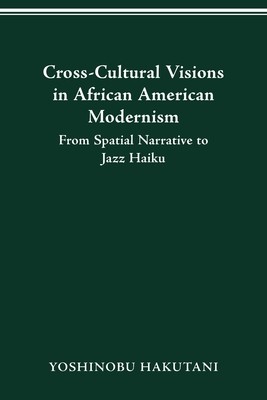
- We will send in 10–14 business days.
- Author: Yoshinobu Hakutani
- Publisher: Ohio State University Press
- ISBN-10: 0814257240
- ISBN-13: 9780814257241
- Format: 15.2 x 22.9 x 1.5 cm, softcover
- Language: English
- SAVE -10% with code: EXTRA
Cross-Cultural Visions in African American Modernism (e-book) (used book) | bookbook.eu
Reviews
Description
Yoshinobu Hakutani traces the development of African American modernism, which initially gathered momentum with Richard Wright's literary manifesto "Blueprint for Negro Writing" in 1937. Hakutani dissects and discusses the cross-cultural influences on the then-burgeoning discipline in three stages: American dialogues, European and African cultural visions, and Asian and African American cross-cultural visions.
In writing Black Boy, the centerpiece of the Chicago Renaissance, Wright was inspired by Theodore Dreiser. Because the European and African cultural visions that Wright, Ralph Ellison, Alice Walker, and Toni Morrison acquired were buttressed by the universal humanism that is common to all cultures, this ideology is shown to transcend the problems of society. Fascinated by Eastern thought and art, Wright, Walker, Sonia Sanchez, and James Emanuel wrote highly accomplished poetry and prose. Like Ezra Pound, Wright was drawn to classic haiku, as reflected in the 4,000 haiku he wrote at the end of his life. As W. B. Yeats's symbolism was influenced by his cross-cultural visions of noh theatre and Irish folklore, so is James Emanuel's jazz haiku energized by his cross-cultural rhythms of Japanese poetry and African American music. The book demonstrates some of the most visible cultural exchanges in modern and postmodern African American literature. Such a study can be extended to other contemporary African American writers whose works also thrive on their cross-cultural visions, such as Amiri Baraka, Ishmael Reed, Charles Johnson, and haiku poet Lenard Moore.EXTRA 10 % discount with code: EXTRA
The promotion ends in 20d.08:36:18
The discount code is valid when purchasing from 10 €. Discounts do not stack.
- Author: Yoshinobu Hakutani
- Publisher: Ohio State University Press
- ISBN-10: 0814257240
- ISBN-13: 9780814257241
- Format: 15.2 x 22.9 x 1.5 cm, softcover
- Language: English English
Yoshinobu Hakutani traces the development of African American modernism, which initially gathered momentum with Richard Wright's literary manifesto "Blueprint for Negro Writing" in 1937. Hakutani dissects and discusses the cross-cultural influences on the then-burgeoning discipline in three stages: American dialogues, European and African cultural visions, and Asian and African American cross-cultural visions.
In writing Black Boy, the centerpiece of the Chicago Renaissance, Wright was inspired by Theodore Dreiser. Because the European and African cultural visions that Wright, Ralph Ellison, Alice Walker, and Toni Morrison acquired were buttressed by the universal humanism that is common to all cultures, this ideology is shown to transcend the problems of society. Fascinated by Eastern thought and art, Wright, Walker, Sonia Sanchez, and James Emanuel wrote highly accomplished poetry and prose. Like Ezra Pound, Wright was drawn to classic haiku, as reflected in the 4,000 haiku he wrote at the end of his life. As W. B. Yeats's symbolism was influenced by his cross-cultural visions of noh theatre and Irish folklore, so is James Emanuel's jazz haiku energized by his cross-cultural rhythms of Japanese poetry and African American music. The book demonstrates some of the most visible cultural exchanges in modern and postmodern African American literature. Such a study can be extended to other contemporary African American writers whose works also thrive on their cross-cultural visions, such as Amiri Baraka, Ishmael Reed, Charles Johnson, and haiku poet Lenard Moore.

Reviews